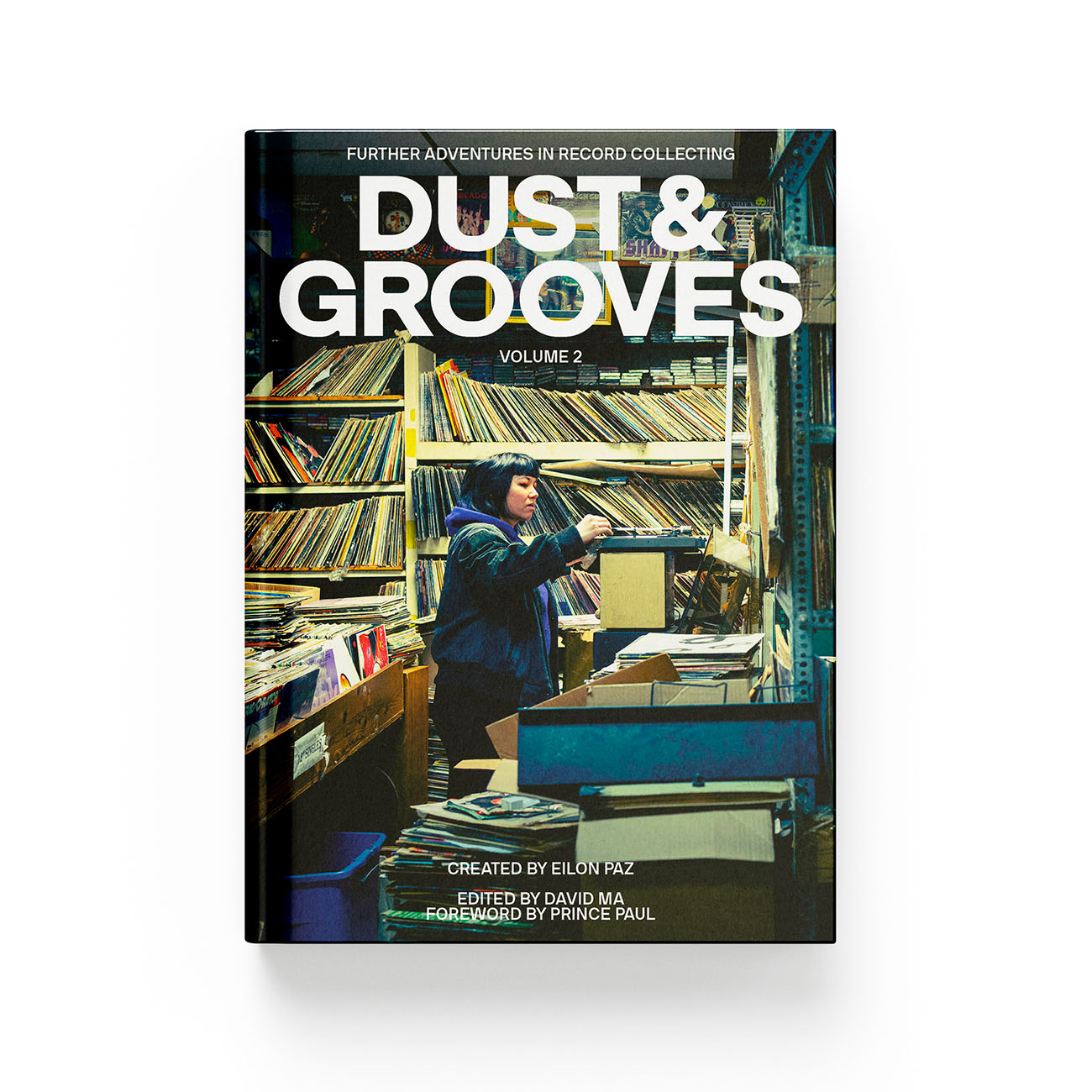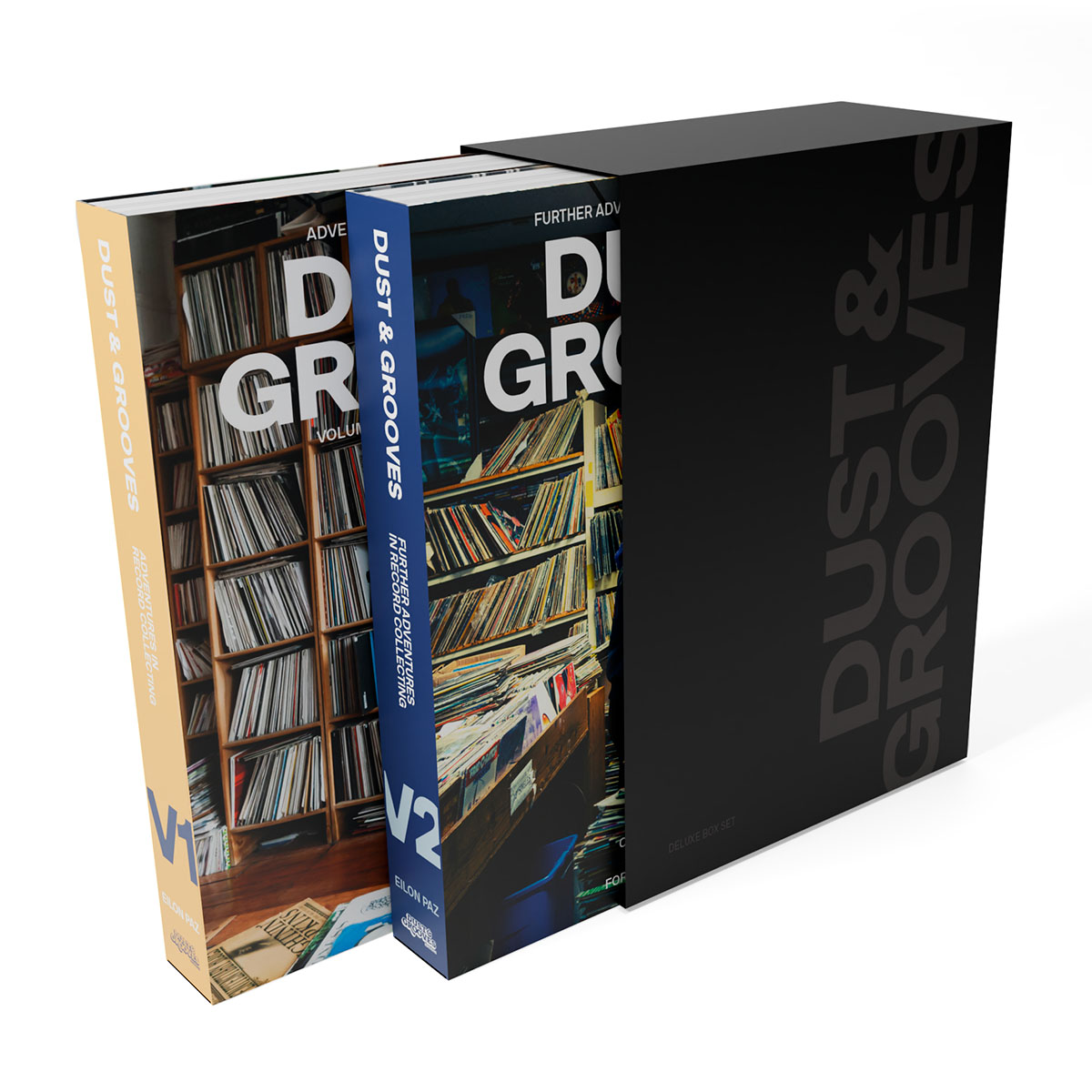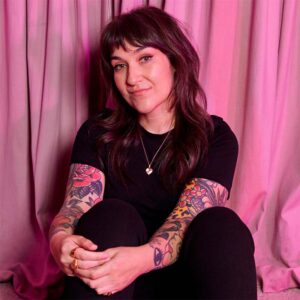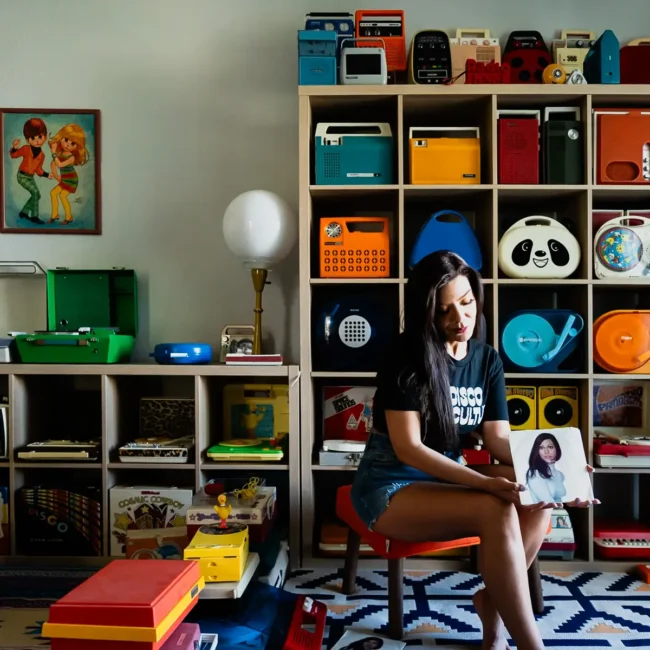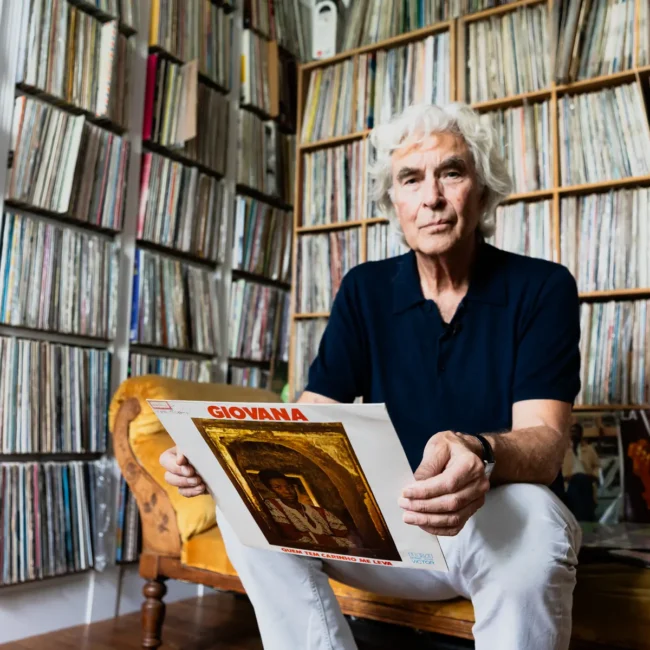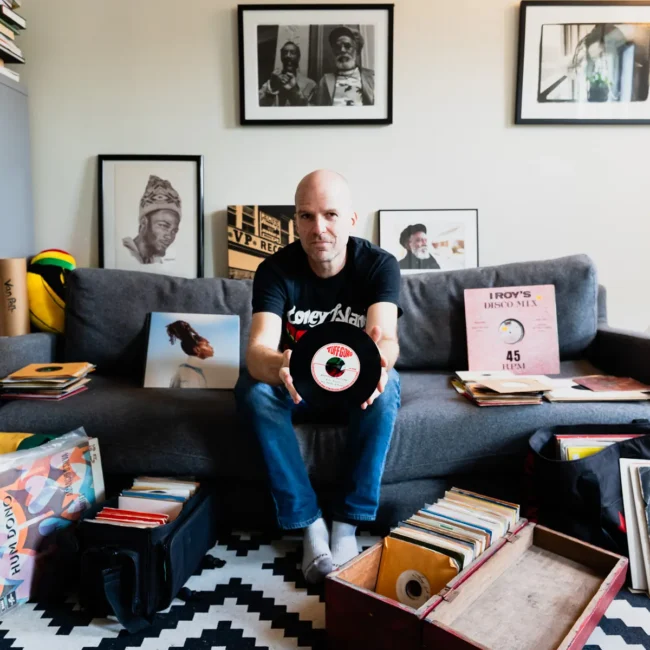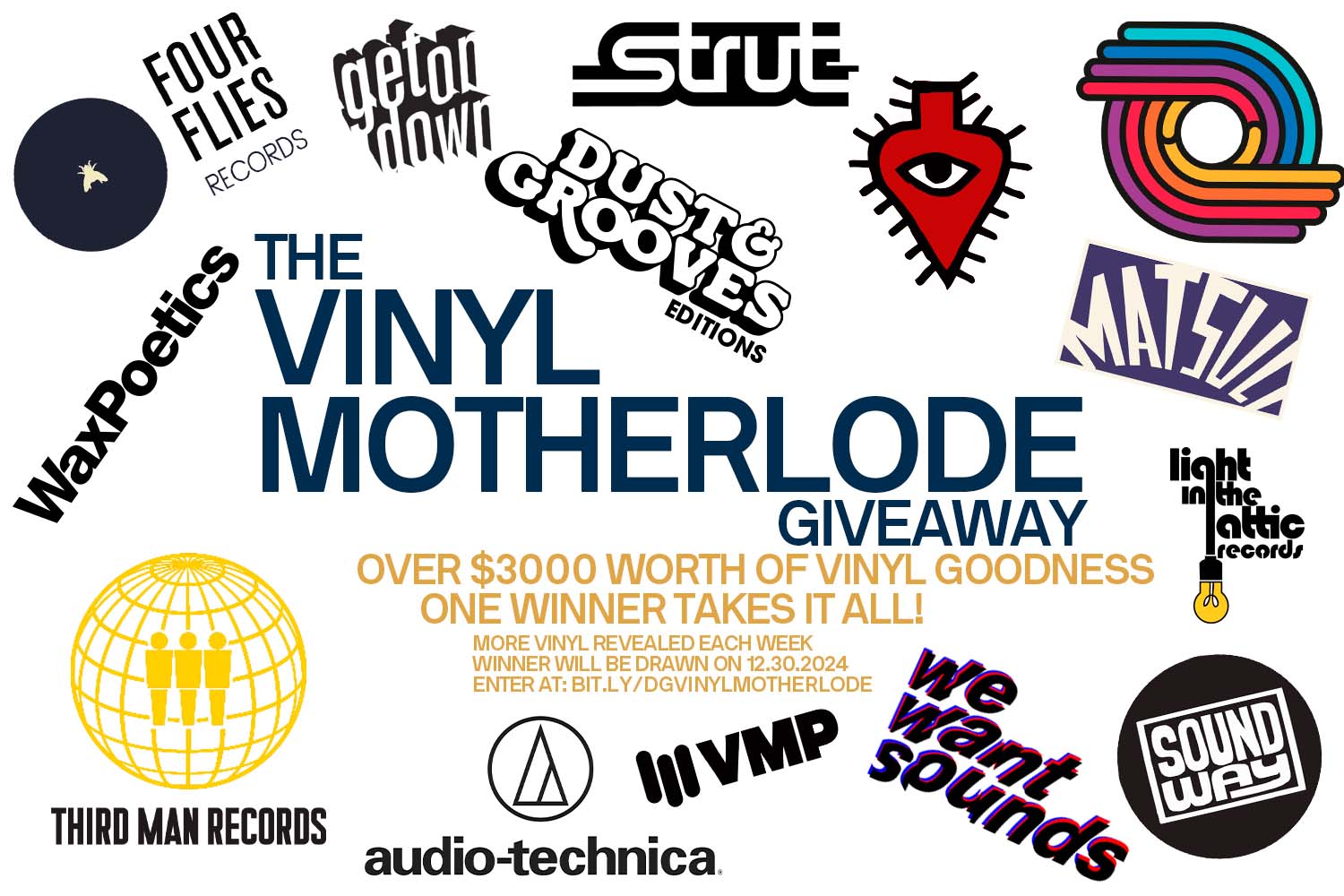Whether DJing, hosting parties, or working on set as a director and cinematographer for Conde Nast, Cole Evelev is motivated by a compulsion shared by every true digger: the drive to discover something new, something better. “I’m almost never satisfied,” he admitted to me from his home in New York.
Evelev comes from a lineage of music royalty – his father, Yale, co-founded the label Luaka Bop with David Byrne. “I’ve basically been going to concerts since I was in mom’s womb,” he said, “I’ve been around musicians and music my whole life. I remember seeing Shuggie Otis at Joe’s Pub when I was super young or being at Summer Stage and going to a Luaka Bop 10-year anniversary. The music I grew up on was probably different than your normal [upbringing]…there was very little, like, classic rock. I was listening to Manu Chao or Tim Maia or Fela.”
His taste was shaped profoundly by the time he was a student at Oberlin, where he was employed as a booker at the campus club. Oberlin is known for having a stellar music conservatory, and the booking team was given a mandate to be imaginative and prolific. “Every week, every weekend, every day, there were concerts. There were six or seven venues, and there were tons of DIY spaces,” he reflects on his time there. “Aaron Dilloway [of Wolf Eyes] lives in Oberlin, so you had a resident noise musician who was top-quality, and the students are obviously all musicians, so there was plenty of talent on campus to pull from as openers. I started college loving music, but my relationship with it was much different. Pretty much immediately, I met people like Will DiMaggio, an amazing DJ and producer who changed what I was listening to and what I was looking for. He introduced me to Groove Chronicles, and I fell in love with UKG. Or Hanna, who’s an amazing house music producer. So, pretty much immediately, I went from listening to electroclash, ’cause it was like 2008 or 2009, to booking Pearson Sound and Terrekke and pretty cool underground DJs.”
Evelev’s commitment to record hunting intensified when he was given a weekly 6-hour residency at the renowned NYC club Nowadays. Every hour he wasn’t working, he would spend at record stores, searching for unexpected treasures to fill his sets with. Although his taste is sprawling and eclectic, every record in his collection shares one sonic commonality. “I’m really interested in beautiful music,” he says. “I don’t need to play hard; there’s a certain softness that I look for, and beauty, and emotion.” He credits living in New York City, with its ever-changing party scene, for keeping him curious, and he keeps one ear firmly to the ground when it comes to new releases. “I’m on Bandcamp so much now. It’s so easy to just get lost in these tunnels and wormholes on there and end up with hundreds of tabs and spend, like, way too much money on music.” When asked who he would like to see appearing next in the pages of Dust & Grooves, Evelev is keen to nominate his friend Will Dimaggio. “He’d make for an excellent feature. His knowledge and love for records know no end. He has made a huge impact on my own taste, and I would love to see what records from the collection he would choose for Dust & Grooves.”
“I feel like most record collectors either dream of going to Japan or can’t wait to tell you about buying records in Japan.”
Cole Evelev Tweet
You’re obviously a passionate digger who loves music and collecting records. Why have you chosen to work in video and not music?
My grandmother was a photographer, and she worked at Vogue. She was the first female photographer on staff. I chose to go to school at a place called Oberlin because I could study Arts and Humanities. Oberlin has a pretty incredible conservatory with a stellar jazz program, a pretty cool electronic music program, and a classical Conservatory. I think I’ve always been someone who needs multiple passions in my life, and music is where I find happiness and creativity in my life.
Many people I know who have become professional DJs have become a little bit jaded once they’ve been doing it for a while. Did you want to protect that part of your creative self by doing something else?
That’s a good question. I don’t think I did that on purpose, but I was the someone who carried an analog camera around with me every day of my life for over a decade. As soon as I started working professionally as a videographer, I stopped doing that because I was spending 8 or 12 hours a day with a camera in my hand, and I was like, “I don’t want to do this in my free time.” So I guess I’m glad I didn’t end up working in music full-time, but it wasn’t a conscious choice.
I know what you mean. I’ve been working in radio for quite a long time, and when you’re on the outside, you think, “Oh my God, people get to do this for a living! It must be so magical working inside the radio studio!” Then once you’ve been doing it for a while, you think, “Hmm, no… it’s a job.”
Totally. I’ve been promoting (live music and club nights) since 2010, and I’m doing a party this weekend, and it’s so stressful, and it’s so much work, but I’m sure once it’s Sunday and the party is going, I’ll be so happy and relieved and having the best time.
Yeah, you get a glimpse of some of that magic once the work is done and you can just relax. Tell me about that side of your life—the promoting.
One of the main reasons I went to Oberlin is because, before I even got there, I had lined up a job as a booker at a campus club. Because the club was in a school that really cared about music, it had a pretty substantial budget, so we had a ton of money to spend on people. And we spent it wisely. The standard American college practice is to throw one Spring Fling where you get acts like Travis Scott and, like, Blink-182, but the way we approached it was doing programming year-round. Every week, every weekend, every day, there were concerts. There were six or seven venues, and there were tons of DIY spaces. Aaron Dilloway [of Wolf Eyes] lives in Oberlin, so you had a resident noise musician who was top-quality, and the students are obviously all musicians, so there was plenty of talent on campus to pull from as openers. I started college loving music, but my relationship with it was much different. Pretty much immediately, I met people like Will DiMaggio, an amazing DJ and producer who changed what I was listening to and what I was looking for. He introduced me to Groove Chronicles, and I fell in love with UKG. Or Hanna, who’s an amazing house music producer. So, pretty much immediately, I went from listening to electroclash, cause it was like 2008 or 2009, to booking Pearson Sound and Tariq and pretty cool underground DJs.
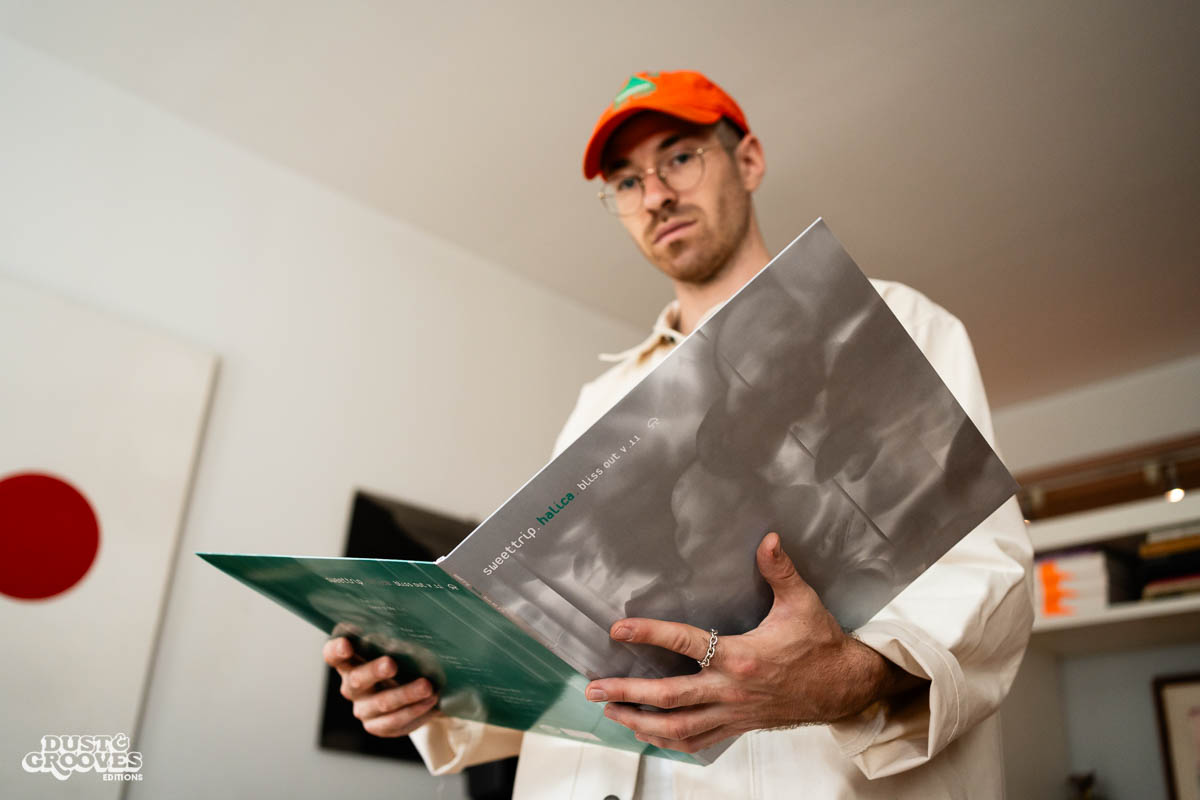
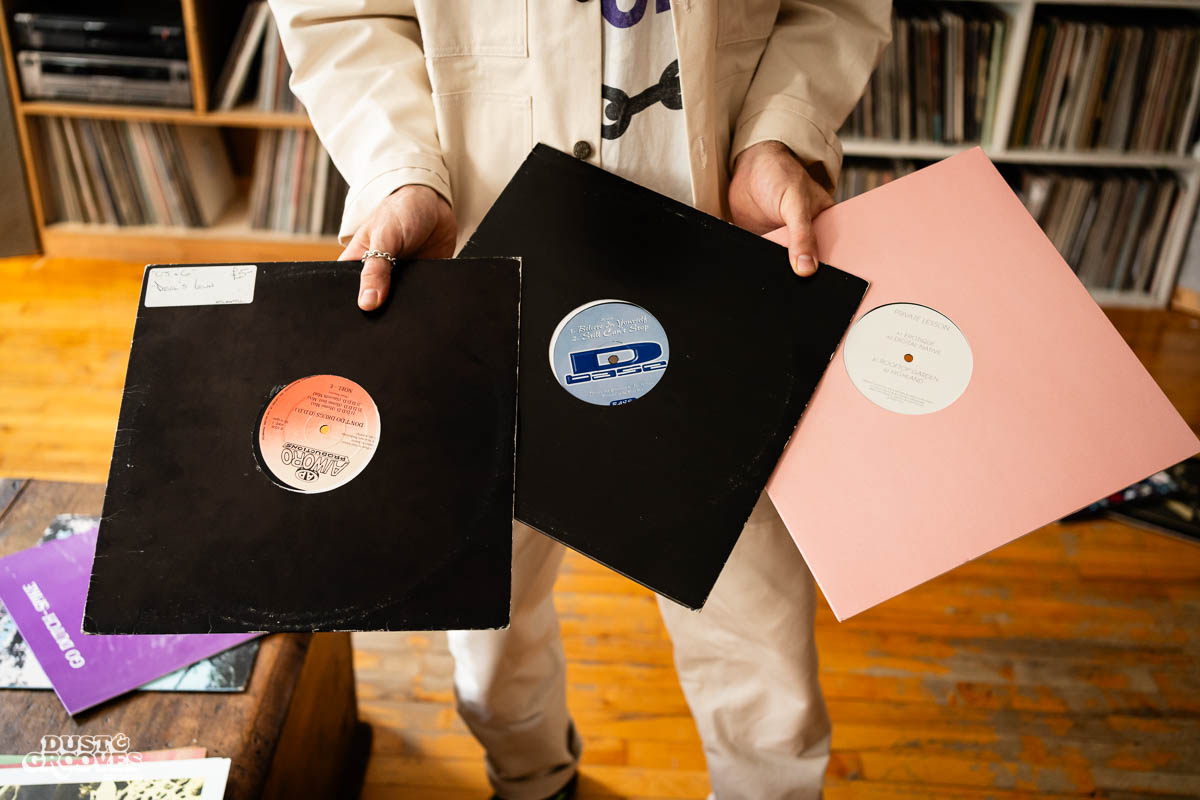
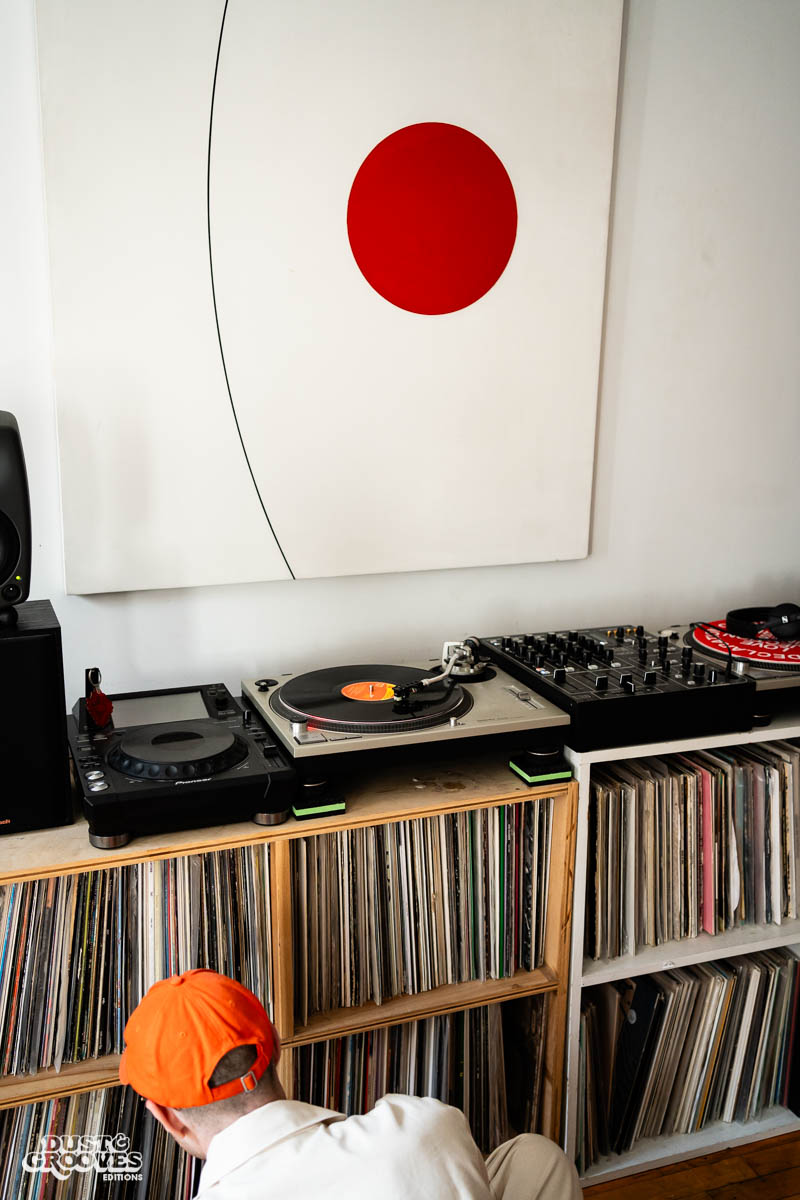
“The apartment I live in was once my grandmother’s. Her name was Frances McLaughlin-Gill and she is a huge inspiration for me. Franny was the first female staff photographer at Vogue. Hired in the 1950s; she was obviously resourceful, strong, and cunning.”
You say your relationship with music was completely different before you went to Oberlin. What was your relationship with music when you were growing up? Because as you mentioned, you have family connections in the arts, and your dad is such a big name for running the record label Luaka Bop. Can you tell me about your upbringing and your childhood relationship with music?
I’ve basically been going to concerts since I was in my mom’s womb. I’ve been around musicians and music my whole life. I remember seeing Shuggie Otis at Joe’s Pub when I was super young or being at Summer Stage and going to a Luaka Bop 10-year anniversary. The music I grew up on was probably different than your normal [upbringing]… there was very little, like, classic rock. I was listening to Manu Chao or Tim Maia, or Fela. The records I wanted were usually different, too. I remember a friend of mine’s mom made us go to Tower Records and get everyone in our friend group Blink-182’s Enema of the State and the Eminem Show.
Why?!
You know… she was a ‘cool mom.’ But also, I’d be on road trips in England, and I’d make my dad buy a Radiohead CD to listen to in the car, or I would go through his collection and pull out a Die Krupps record and be like, ‘Okay, I’m really into this German industrial band right now.’
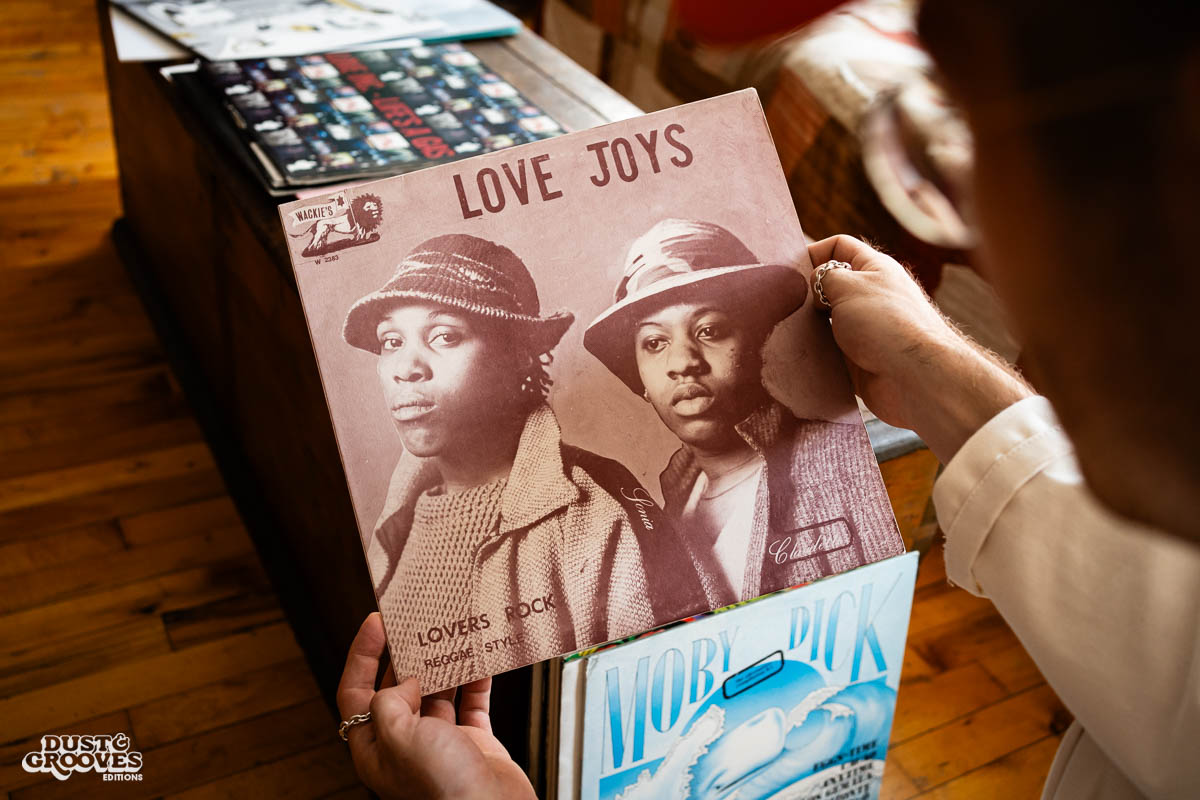
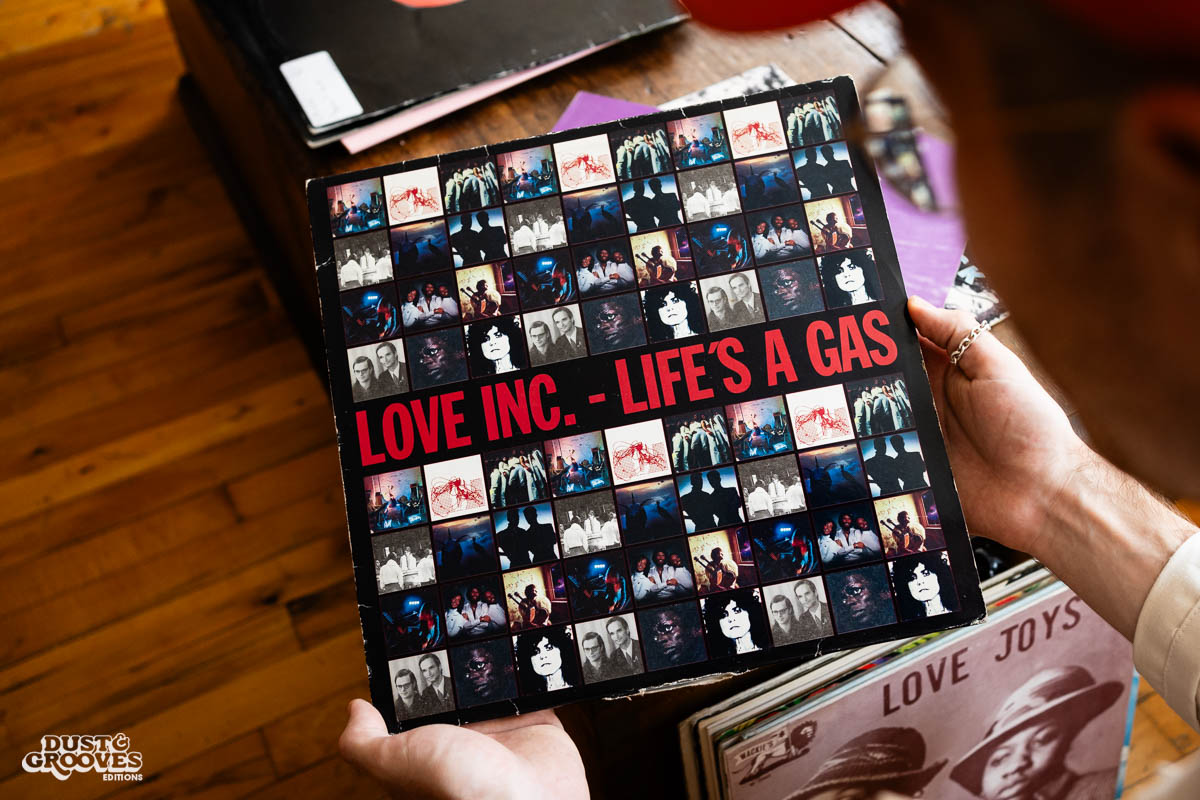
When I was growing up, music was an essential part of expressing who you were. It’s fascinating, the idea of growing up in a family where music is so much a part of your upbringing that it becomes unselfconscious. Were you using music in the same way that many young people do–to represent yourself and your identity–or were you just purely into what you were into?
Huh. I think I was just into what I was into. In high school, in particular, I was in a friend group that was very rap and hip hop focused. Everyone was going to Black Star or Wu-Tang Clan shows, and we would just sit in their apartments when their parents were out and just play Dipset on YouTube or something. I often felt like that was music I loved and connected to, but my friends were so into it and knew so much about it. I was really focused on more electronic stuff at that time and was totally happy not being as focused on that particular world as they were and not needing to feel like I knew as much about it as they did. I had a few different hobbies and interests, but some of my earliest and strongest friendships were made through going to see bands of people my age.
Did you find that your tastes broadened again once you got that booking job at Oberlin? It must have been exciting to be booking stuff you had an instinct about, but you also knew it would need to cover a breadth of genres to cater to other tastes.
100%. It was a committee, and everyone on the committee brought something different. There were tons of people around me that were interested in different things and incredibly knowledgeable about it, and part of the job was working gigs that weren’t your own, so I was just constantly at shows.
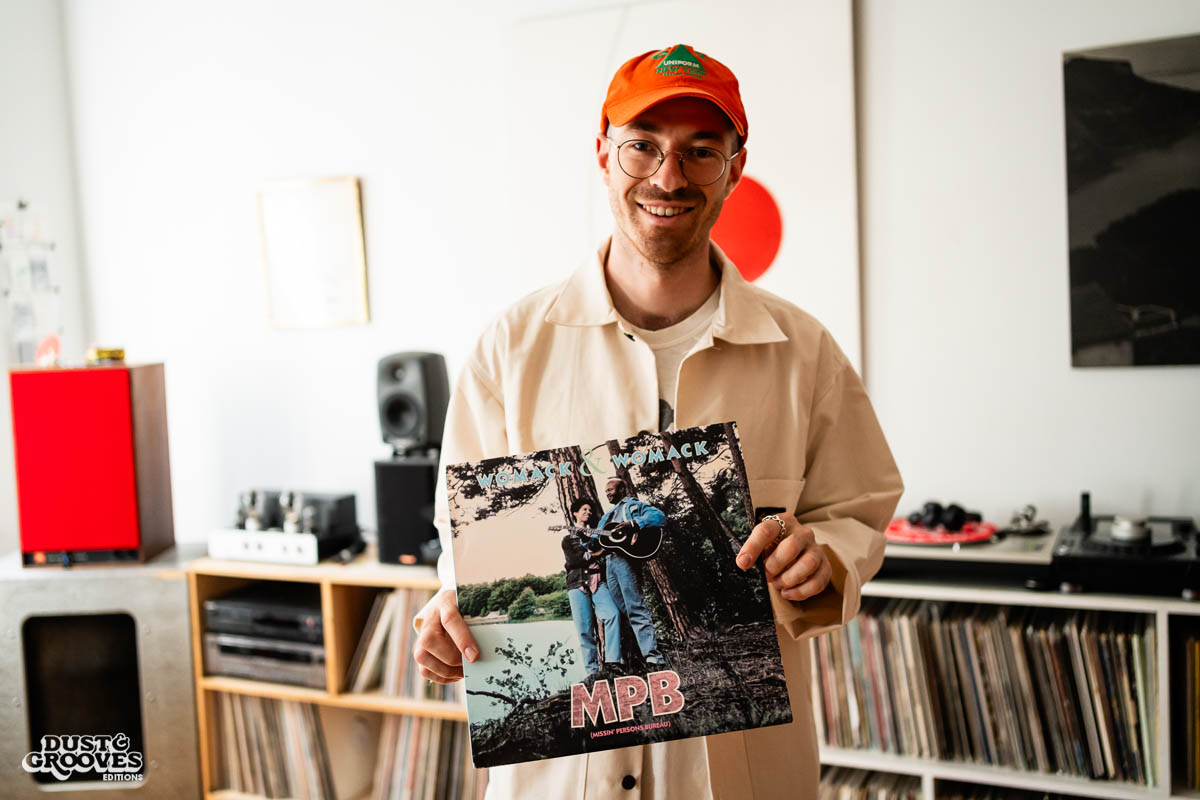
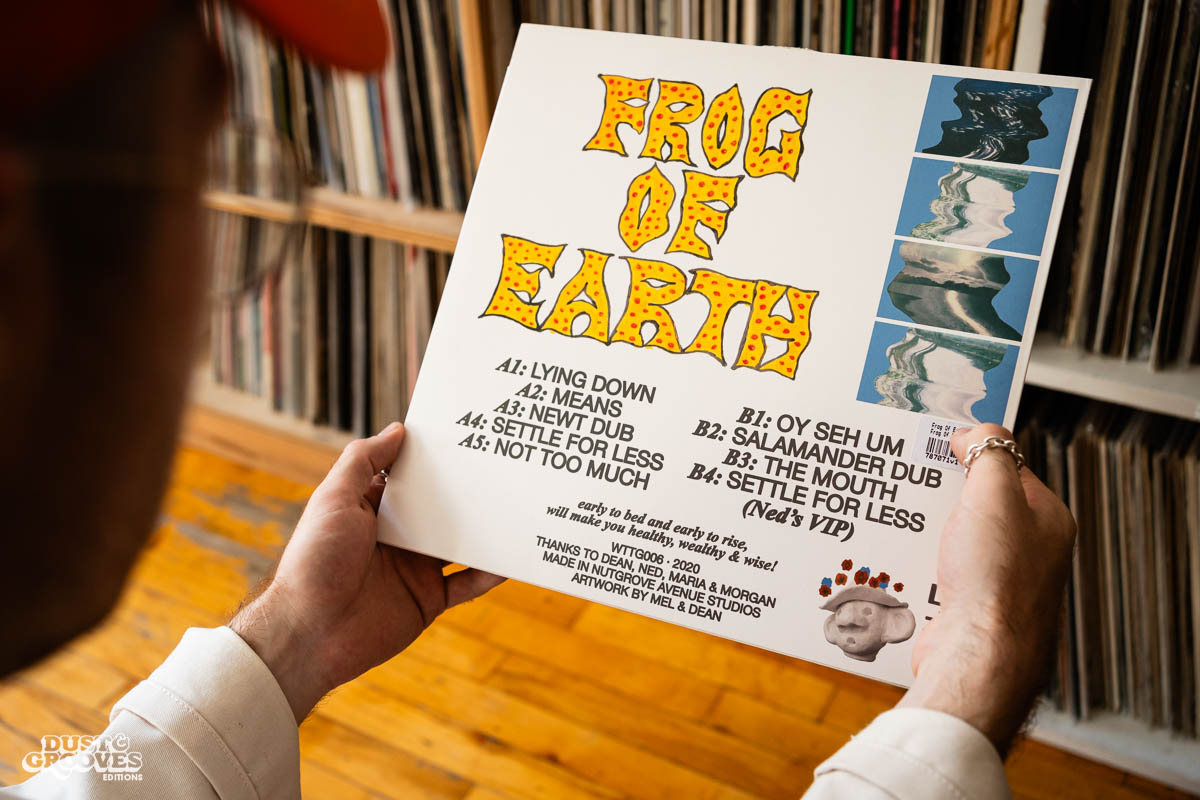
It seems like it’s not just records that you dig for. Is that compulsive always-looking-for-the-next-thing an important part of your character?
100%. I’m almost never satisfied. The digging really took off because I got a residency at this New York club called Nowadays. It was the first summer it was open, and now it’s got a club inside that’s the best club in North America—one could say arguably the best club in the world at times. It was every Saturday for six or seven hours, and it was vinyl-only, and basically, that always-looking-for-the-next-thing kind of attitude or compulsiveness that I had made it so that I had to be in a record store at all times when I wasn’t working. I got $250 a week as a stipend to dig with and bought hundreds and hundreds of records.
What were you listening out for that would work in that space? Or did you challenge yourself to spread out in all directions?
It was about spreading out in all directions. It’s a 6-hour set. I really believe in an arc, in telling a story and starting somewhere and ending somewhere else and having a narrative that makes sense, so I wasn’t really focused on one thing. It wasn’t a club at that point; it was really just like an outdoor space where people would hang out and have a drink or some food. There was an emphasis on not playing too much dance music, actually, so I was really just looking for anything I thought sounded good.
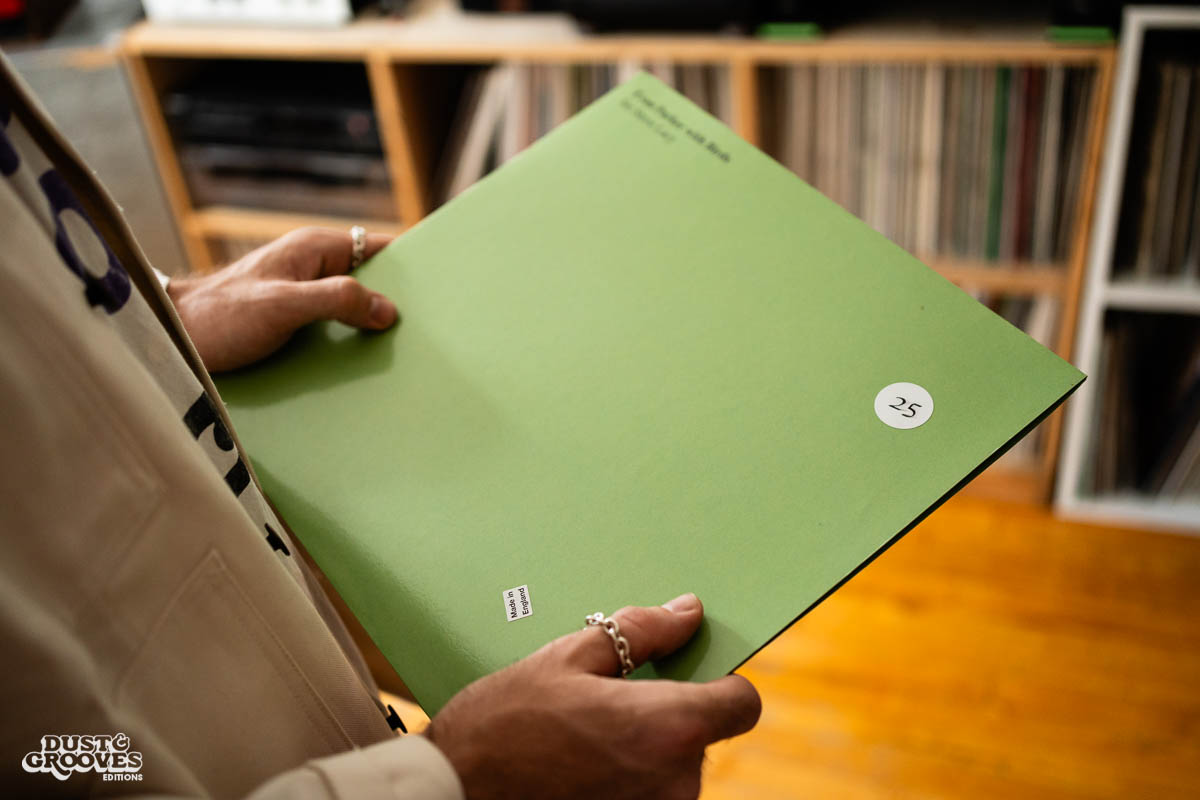
"I firmly believe in trying to tell a story when I make a mix. Especially on the radio I want to lull the listener in and then build peaks and valleys where the energy spikes."
Cole Evelev Tweet
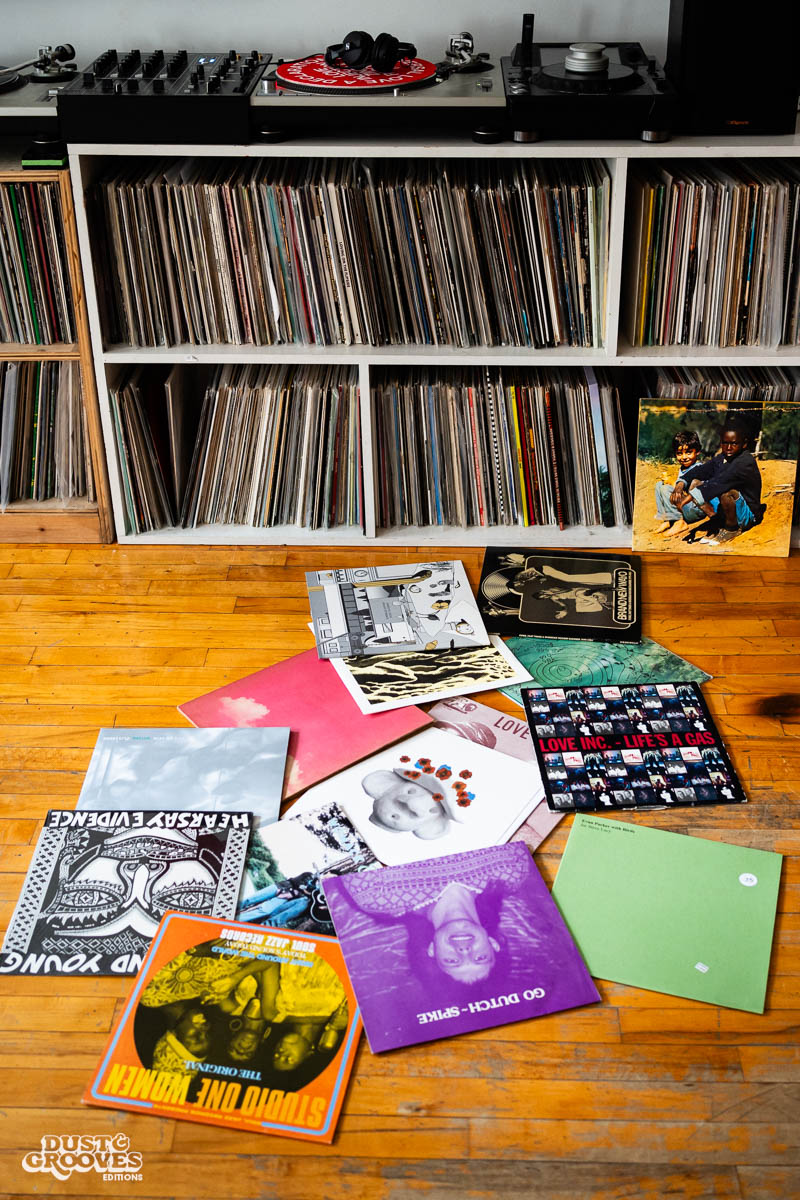
Playing a gig like that can make you a bit obsessive.
Totally, and you start organising your records so well and knowing them front-to-back. And there’s something so special about being asked to play on a weekly basis.
Regarding your collection, is there a sonic commonality between the records?
Not always, but yeah, a lot of them. I’m really interested in beautiful music. I don’t need to play hard; there’s a certain softness that I look for, and beauty and emotion.
I like the idea of commonality being beauty. Do you keep an ear out for new music? Because that’s very different from going into a record store and digging. Have you got a specific way of discovering new releases?
Yeah, for sure. My partner and I live together, and she worked at a store called Commend which was run by this label, Revenge. The store closed down unfortunately, but she was buying new music for the store, and I’ve just learned so much through her. So that was one way, and she’s an incredible DJ with great taste. I’m also just on Bandcamp so much now. It’s funny, I’ve seen Bandcamp progress from when I was in high school, and it was like really janky, but now it works amazingly well. It’s so easy to just get lost in these tunnels and wormholes on there and end up with hundreds of tabs and spending way too much money on music.
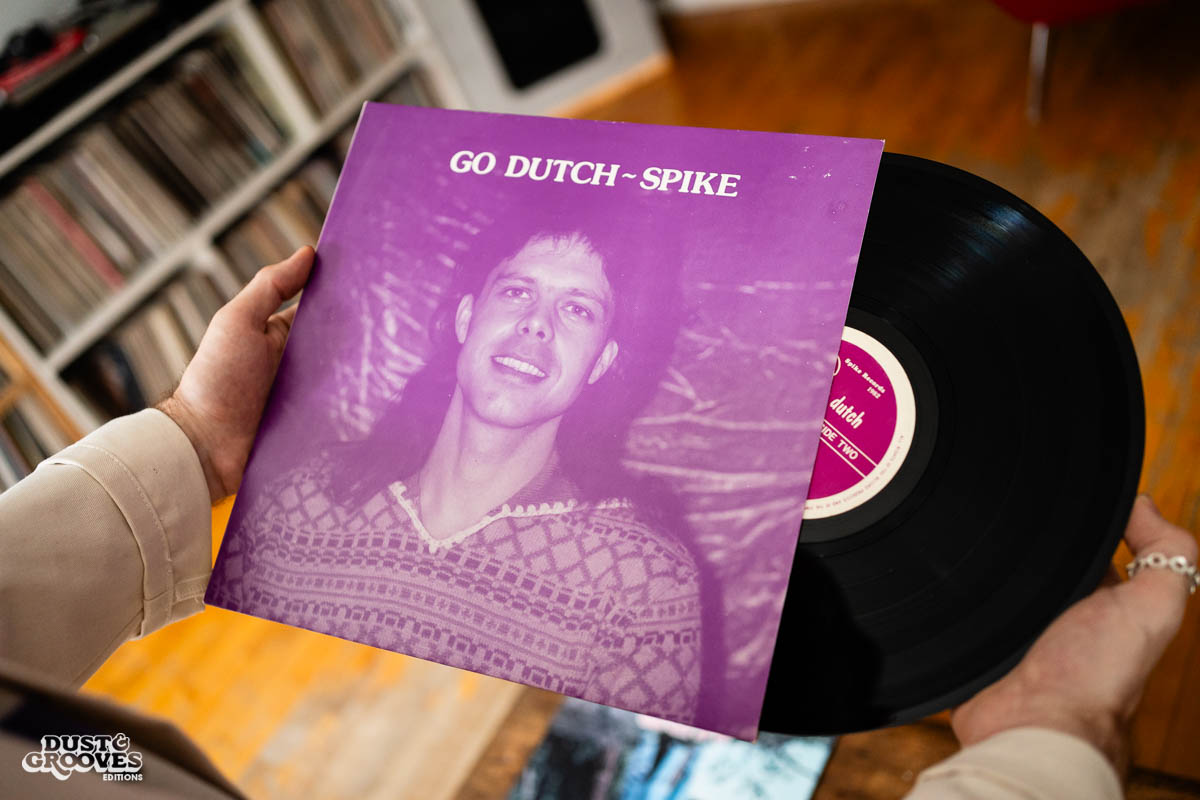
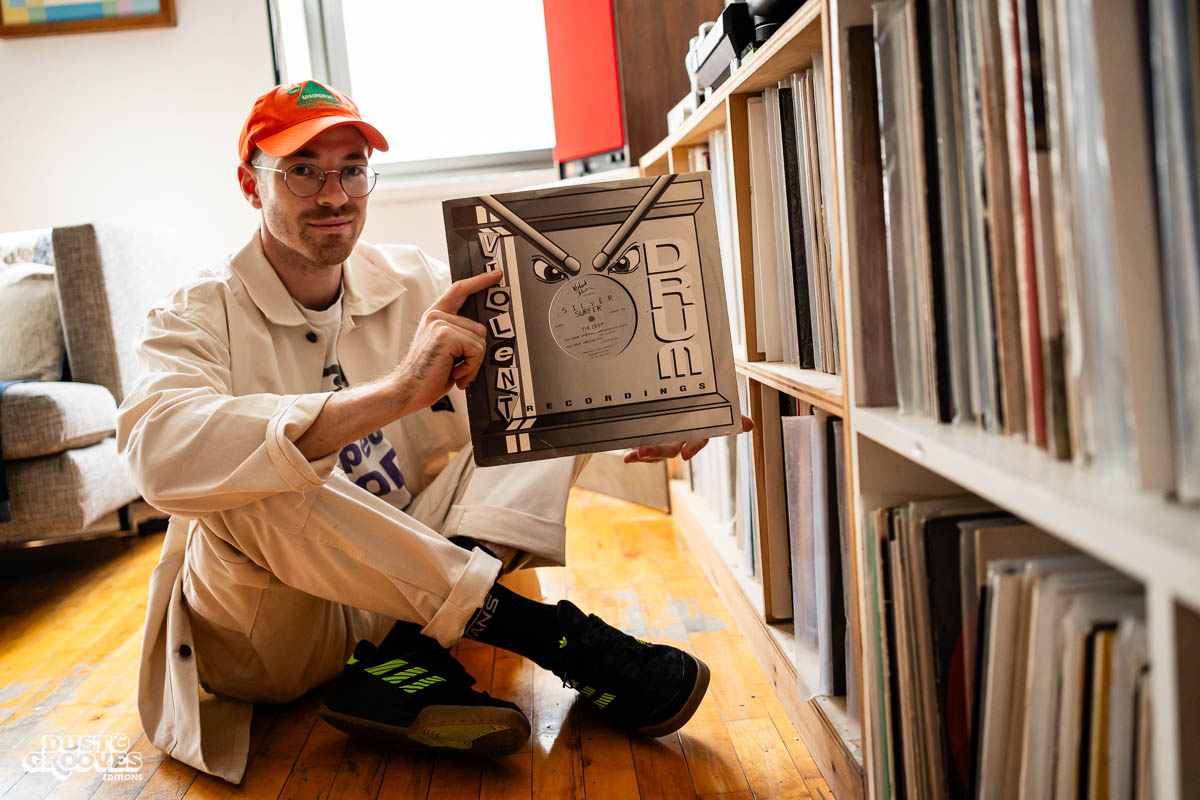
“I don’t need to play hard; there’s a certain softness that I look for, and beauty, and emotion.”
Cole Evelev Tweet
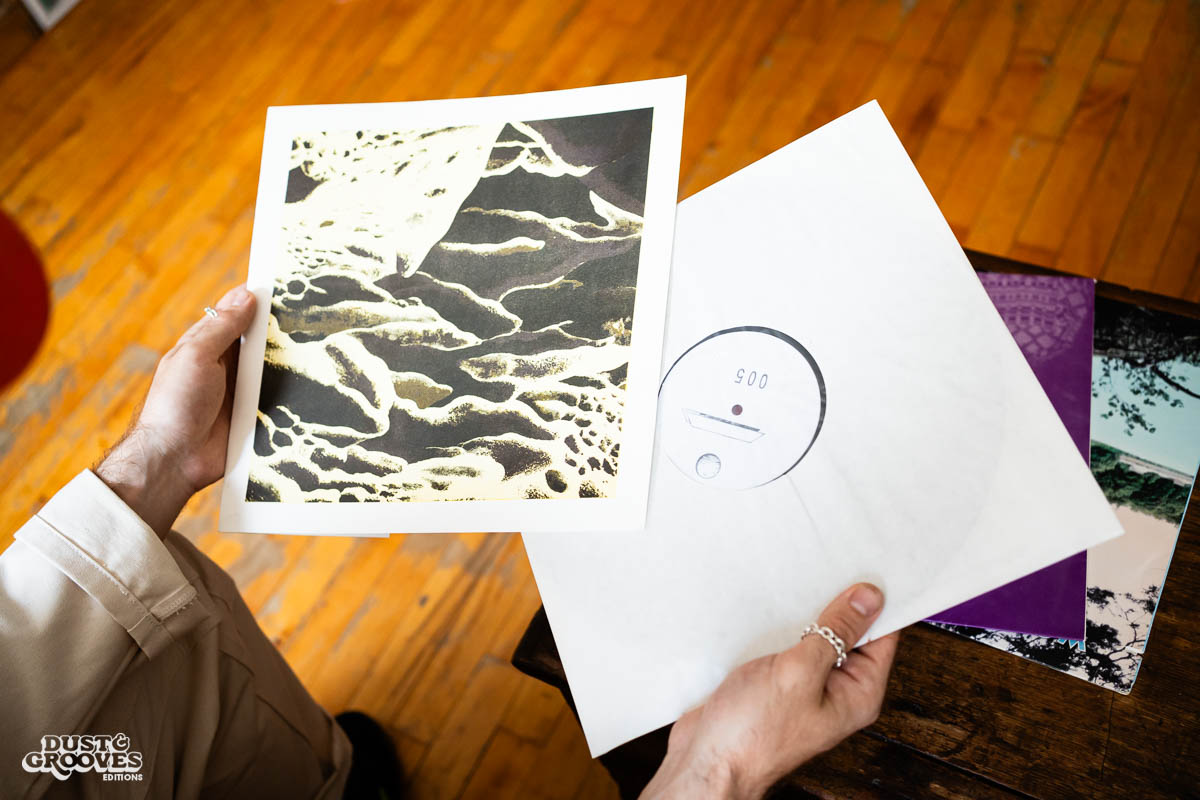
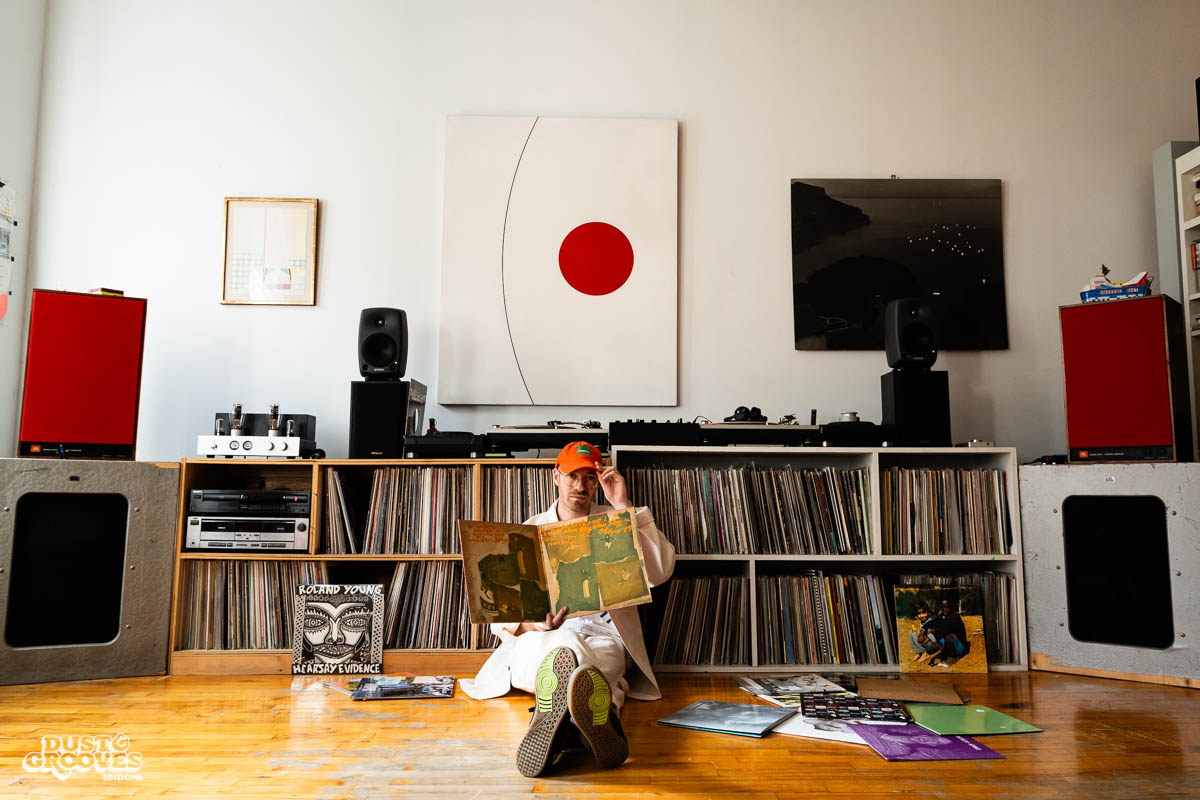
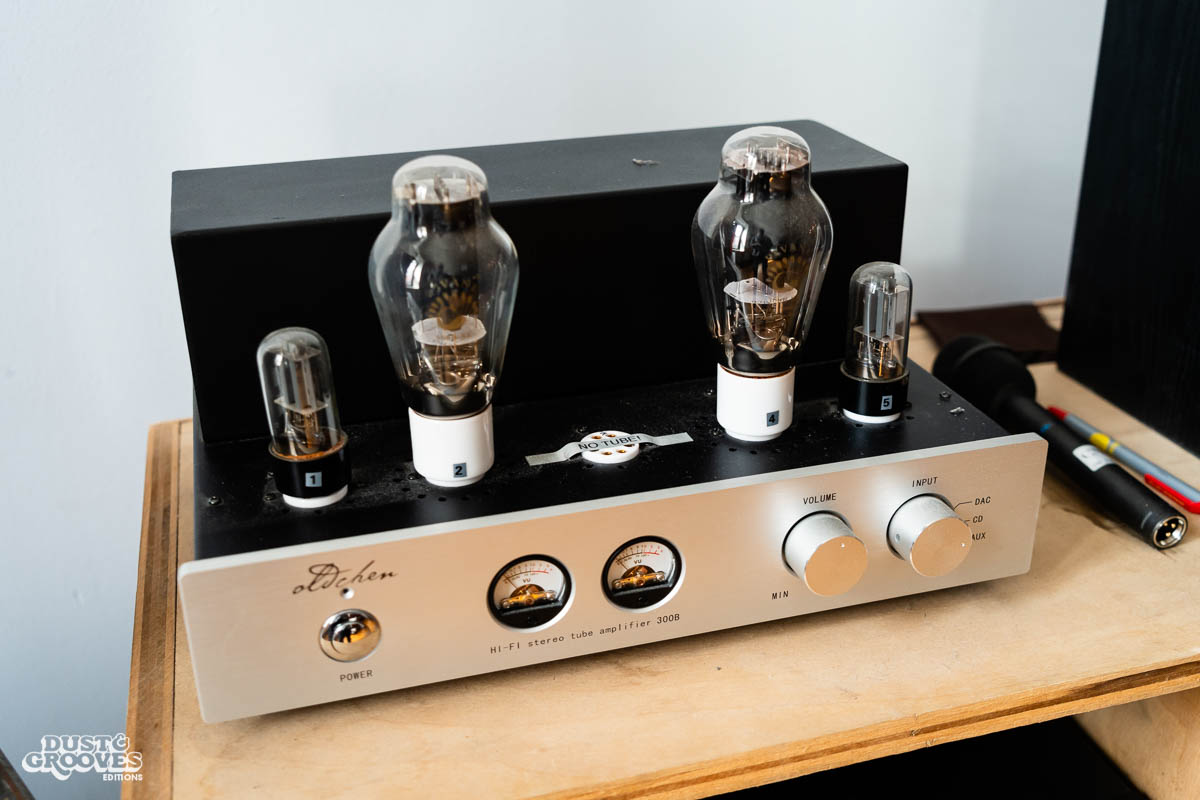
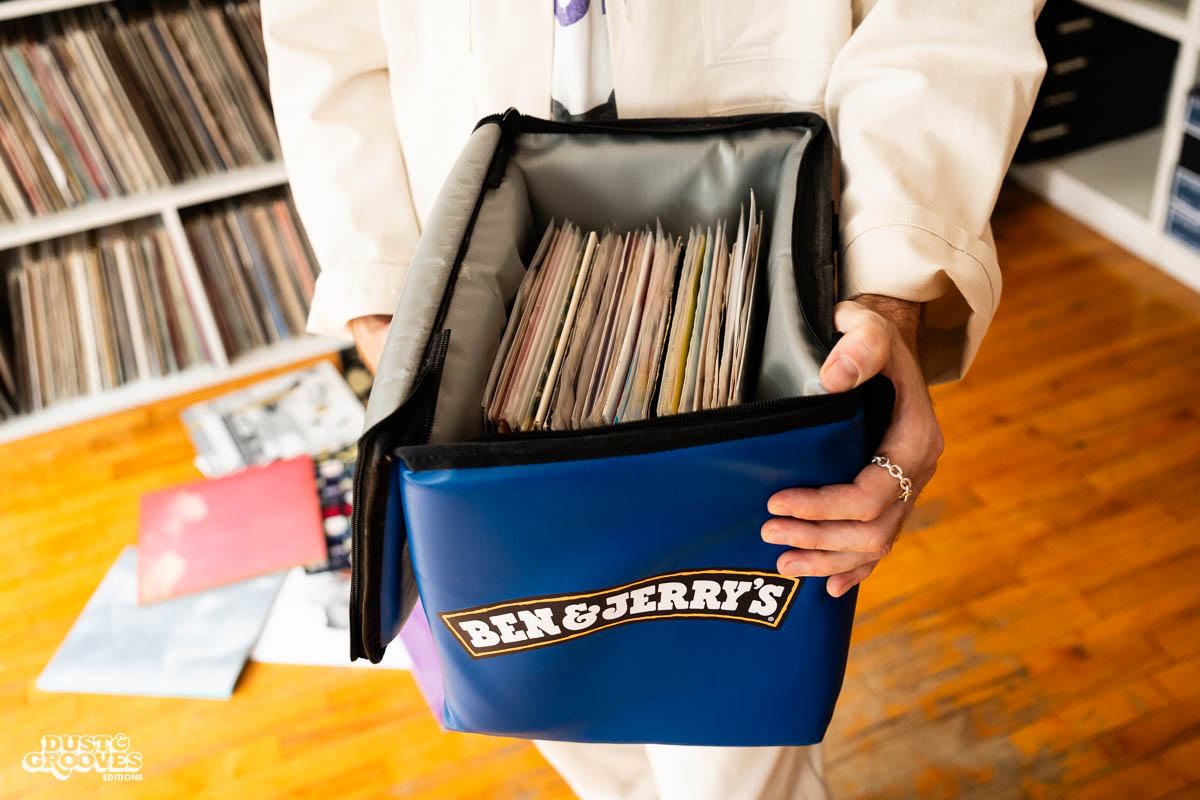
Looking back at how your taste has been shaped, is it linear? How do you see that story arc? Is it something we’ve already spoken about regarding your experiences at Oberlin, or are there aspects we’ve missed?
I think a lot of it is shaped by living in New York City. It’s such an influential place. There’s basically an infinite amount of talent in any kind of DJ or music specialty. With the amount of clubs and DJs, you’re just exposed to so much music. And also the parties – for a while, I was going to The Loft and Joy almost religiously. Joy is like a smaller offshoot of the Loft that is in an apartment in Brooklyn that’s also kind of invite-only, so it’s a similar setup. At that point, I was listening to tons of disco and classic house, and then I was going to festivals like Sustain-Release or going to see DJs like Pillowman or Powder. I started listening to more tech house adjacent stuff, and I stopped looking for disco as much.
Is there anything else you’d like to add to help give an accurate reflection of you and your taste?
A really important part to me about new music and modern music is that so much of the stuff that’s coming out and the stuff I’m into is being made by people that are my age or my friends. I’m at this point now where if I find something I like, it’s often the case that this is someone that I can message on Instagram or that I already know, and it’s really fun to make connections like that. For instance, the party I’m doing on Sunday is with Cousin who I haven’t met in real life. They live in Australia, but because I liked the music I sent them a message and now we’re doing a party together. That connectivity is a great thing.
"A lot of my records aren’t just objects or music, they carry memories and friendships."
Cole Evelev Tweet
Cole Evelev is a video director, cinematographer, DJ, and curator born and raised in NYC. He is a creative director at GQ, but his fascination with fashion, food, music, and skateboarding has led him to features in the New York Times and the creation of projects for Vogue, Bon Appétit, and NTS Radio.
evelev.com
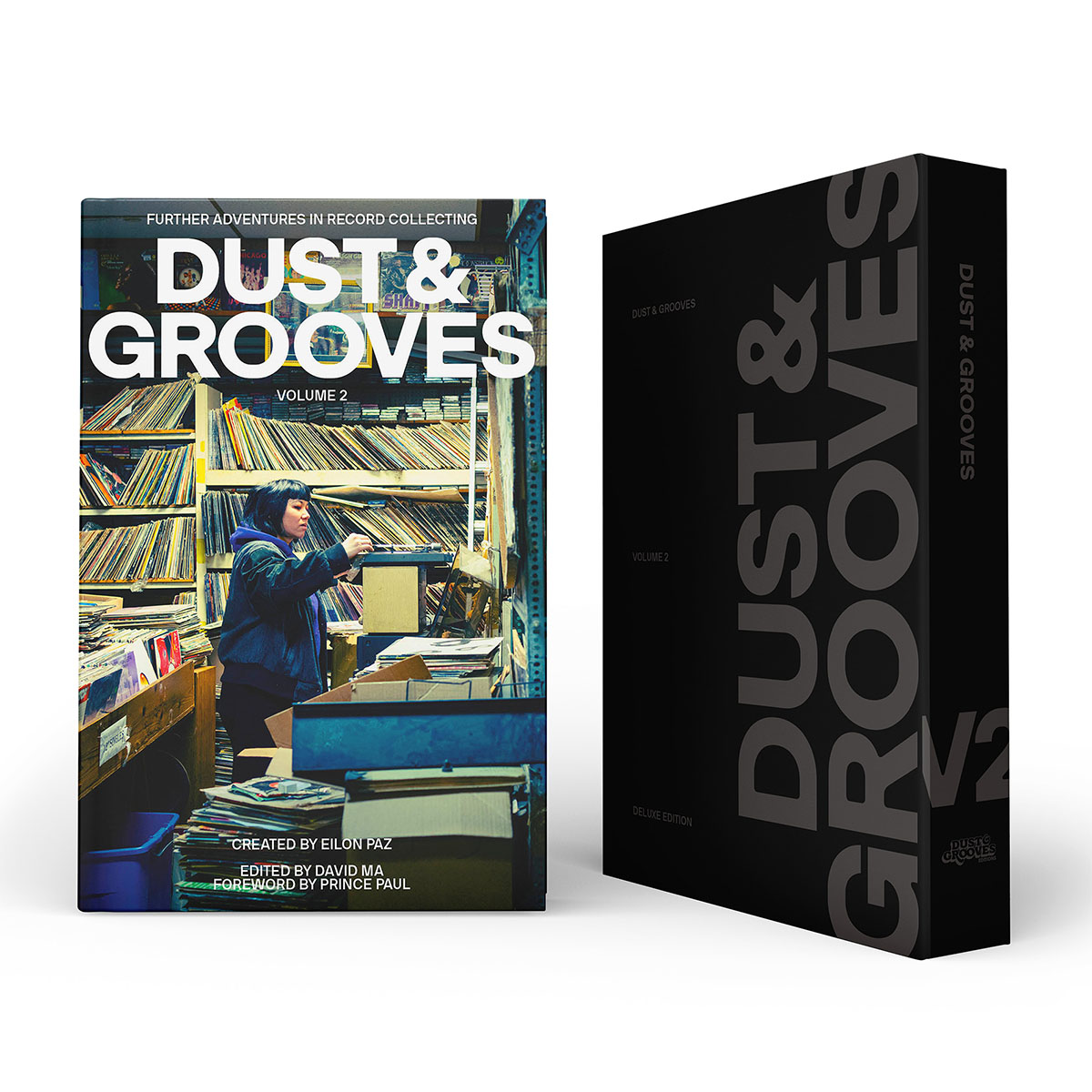
Dust & Grooves: Further Adventures in Record Collecting – Deluxe Slipcase First Limited Edition
Further Adventures in Record Collecting
Dust & Grooves Vol. 2
Cole Evelev and 150 other collectors are featured in the book Dust & Grooves Vol 2: Further Adventures in Record Collecting.
Book drops October 15, 2024
Presale opens September 1.
Become a member or make a donation
Support Dust & Grooves
Dear Dust & Groovers,
For over a decade, we’ve been dedicated to bringing you the stories, collections, and passion of vinyl record collectors from around the world. We’ve built a community that celebrates the art of record collecting and the love of music. We rely on the support of our readers and fellow music lovers like YOU!
If you enjoy our content and believe in our mission, please consider becoming a paid member or make a one time donation. Your support helps us continue to share these stories and preserve the culture we all cherish.
Thank you for being part of this incredible journey.
Groove on,
Eilon Paz and the Dust & Grooves team




